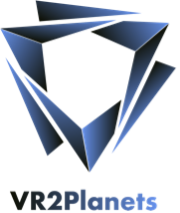Short Courses
VGC 2025 will provide a valuable opportunity to participate in short courses aligned with the conference themes. These courses are led by experts in the field and offer the latest techniques and insights for attendees, from beginners to advanced users, to enhance their knowledge and skills.
The course offerings have been categorized into two streams, with each stream comprising two three-hour sessions:
-
- Stream 1: Point Cloud Analysis and Geomodelling
- Stream 2: Virtual Geoscience and Virtual Reality
Please see a draft schedule of the short courses below:
| Stream 1 | Stream 2 | |
| 9:00 – 10:00 | Registration |
|
| 10:00 – 13:00 | 1A) Change Detection, Segmentation, and Mapping in CloudCompare | 2A) Virtual Geoscience in a Nutshell |
| 13:00 – 14:00 | Lunch (included in the short course fee) | |
| 14:00 – 17:00 | 1B) Digital Outcrop to 3D Model | 2B) Virtual Field Trips |
When registering for the short courses, please rank the short courses by order of preference. You have the option of choosing short courses from a combination of the two streams (for example, you may rank Course 1A and 2B as your first choices). In the end, you will be assigned to two short courses on a first come, first served basis (based on space availability). Courses from Stream 2 (Virtual Geoscience in a Nutshell and Virtual Field Trips) may be offered twice – each in the morning and afternoon – if there is enough interest
Click on the titles below to see a detailed description of the courses.
Stream 1: Point Cloud Analysis and Geomodelling
1A) Change Detection, Classification, and Mapping in CloudCompare
- Introduction to CloudCompare
- Change detection with the M3C2 plug-in
- Classification using the Canupo and 3DMASC plug-ins
Pre-requisites: Basic knowledge of CloudCompare
Duration: ½ day
Course holders: Daniel Girardeau-Montaut and Samuel Thiele

1B) Integrative 3D Modelling with digital outcrop, topographic, and subsurface data
This course will guide participants through a workflow for extracting structural data from digital outcrops and 3D geological maps (draped on topography) and deriving implicit 3D geological models. Compass, a plug-in for CloudCompare, will be used to extract orientation and thickness measurements and trace geological contacts. The resulting information will be exported and then used to construct 3D interpolations (geological models) using a QGIS plug-in, Python, and the LoopStructural package. In doing so we aim to help interested geoscientists integrate digital outcrop and 3D geological modeling techniques into their work, and provide an introduction to open-source geological modeling capabilities. By the end of the course, participants will have gained insights into the versatile uses of CloudCompare and an introduction to geological modeling with QGIS and Python.
Duration: ½ day
Course holders: Samuel Thiele, Lachlan Grose, and Sofia Brisson
Stream 2: Virtual Geoscience and Virtual Reality
2A) Virtual Geoscience in a Nutshell
This course will give participants a practical introduction to the topic of Virtual Geoscience. This is a technology-driven field making use of modern 3D reality capture, visualisation and analysis methods to gain new insights in our geoscience challenges. We will cover key techniques available in the toolbox of virtual geoscience – including an overview of 3D model acquisition, and focussing on visualisation, interpretation and presentation. The course will be practical, allowing you to experience and work with a range of virtual 3D models at different scales. You will become familiar with 3D model handling, measurement and interpretation, and integrating a range of field and spatial datasets. We will also look at ways to showcase our results for outreach and presentation to collaborators, stakeholders and more. Appreciate the potential of virtual geoscience – in a nutshell!
The course is aimed at anyone looking to integrate 3D models (such as from photogrammetry or lidar) in their geoscience projects or refresh their existing experience. Participants from research, public or private sector are welcome.
Duration: ½ day
Course holder: Simon Buckley


2B) Virtual Field Trips
The course will provide an introduction to collaborative virtual field trips.
We will give a brief introduction to VRExplorer, its capabilities and the foundations for creating a Virtual Field Trip. After this introduction, the participants will have the opportunity to take part in a collaborative virtual field trip in Jebel Madar, a salt cored anticline in North Oman. Depending on the audience’s interest and the background of the participants, there will be the possibility to visit other geological sites as well as carry out a mapping exercise in a structurally complex but fully outcropping area.
Duration: ½ day
Course holders: François Civet and Pascal Richard

